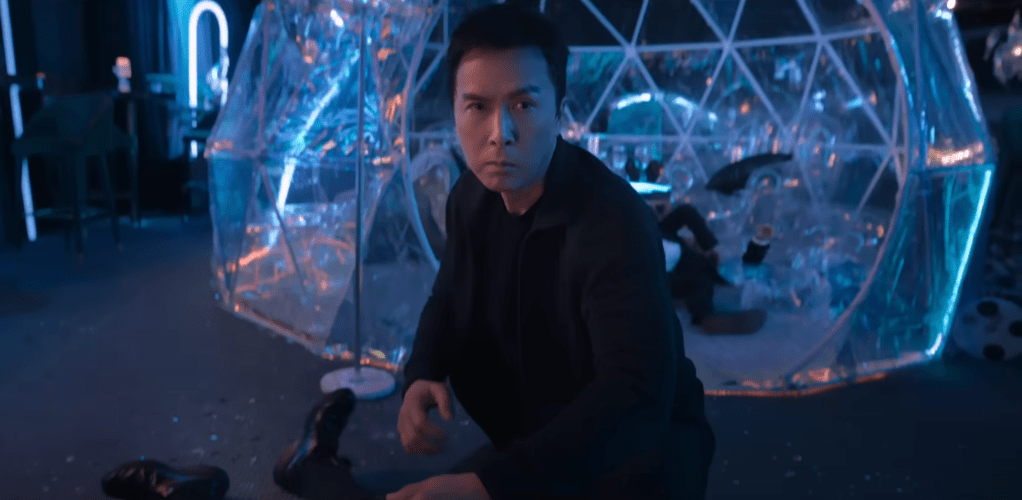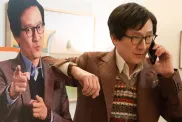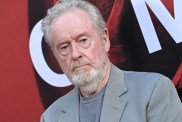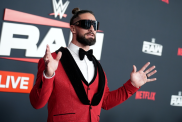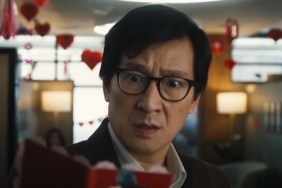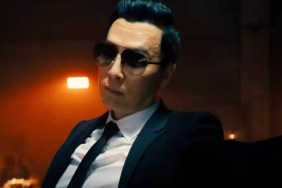ComingSoon’s Jonathan Sim recently spoke with Hong Kong action star Donnie Yen for his new action thriller movie, The Prosecutor, which is out today in theaters. Yen has gained international recognition for his roles as the titular character in the Ip Man movies, Chirrut in Rogue One: A Star Wars Story, and Caine in John Wick: Chapter 4.
Yen stars in, produces, and directs The Prosecutor. “Inspired by an actual legal case in Hong Kong, The Prosecutor follows the story of a man who falsely pleads guilty to drug trafficking after being framed,” reads the official synopsis. “Despite the confession, the veteran policeman-turned-prosecutor (Donnie Yen) handling the case is convinced of the man’s innocence and pursues his own investigation, risking both his career and his life to bring the real perpetrator to justice.”
Jonathan Sim: The Prosecutor is this film that you act and star in. What is the most challenging part of acting and directing at the same time?
Donnie Yen: I’ve been doing it for the longest time. I’ll take this opportunity to correct a few things on IMDB where some of the information is not a hundred percent correct. I directed my first two films back in 1997, Ballistic Kiss and Legend of the Wolf. Then later on, I helped direct scenes here and there, but sometimes, I don’t put my name out there, right?
For example, recent years I actually directed several films. For example, the movie called Enter the Fat Dragon, as well as Chasing the Dragon with Andy Lau and Wong Jing. I directed probably pretty much 80, 90% of the film for Chasing the Dragon. And I helped my late friend Benny Chan with Raging Fire. He was ill toward his last few months before he passed away.
So I do a lot of behind the scenes kind of work. From day one, when I was helping the action choreographer, I actually helped him set up shots and tons of work all the time. You know, I love editing. Always edit my own scenes. So I always have to have that experience as a director. In fact, I think it’s better for my creativity because when you flesh out a scene, you can only accurately present your images or how you tell the story if you are allowed to shoot it yourself whilst something is not right. You know what I’m saying? And I think that goes with a lot of other film peers in, in the industry as well.
Nowadays, you see an actor being a producer or sometimes take on the director chair where they can bring their vision the most accurate way. But yes, I’ve been doing it for, for a while. In fact, I enjoy directing sometimes a lot more than acting. Maybe I’ve been acting for so many years that I’m a little bit…I don’t find that kind of motivation as much as being a director. When I direct, it opens me up to endless possibilities. So when I’m only acting, sometimes I find I’m restrained, sort of, I’m being cornered, so okay, I’ll do my best within the frame of this character. But yeah, I do enjoy directing.
Yeah, I can tell. You did such a great job with directing. I knew that you had directed before, but I hadn’t seen your work [as a director] until The Prosecutor, which was insane. It was so, so incredible. I also watched the Directing with Donnie Yen featurette. You talk so much about the craft of filmmaking. I realized how knowledgeable you are about this, which is really impressive. And they said that, you talk about how shooting an action movie is still shooting a movie and not just shooting action. When you’re directing these dialogue scenes that take place in these courtrooms, how do you make sure that those, that audiences are as interested in these scenes as they are in all these fight scenes?
Number one, you are absolutely right. I think for the longest time action movies have been cliché into the perspective of audiences. When they think of action movies, they only think of this. But action movies are just one of the elements that makes up a story. Action is a genre. In this movie, there’s tons of action. But at the end of the day, you still have to tell a story. You still have to convince the audience. You still have to get the audience to emotionally attach to your story in order to make it work.
You can blow up buildings. You can have a four-hour shootout. You can start fighting from the from the first shot to the end shot. If the audience’s emotions are not engaged to your story, none of them are gonna work. So if you think of maybe SPL or Ip Man, the audience is emotionally attached. So my key is always when I choreograph something or when I shoot something, and now ultimately when I direct something, first and foremost, I need the audience to be inside my story. So when I take them on the emotional ride, I know that it’s gonna work.
I think it’s also pacing. Courtroom dialogue scenes or physical movements, from A to B, right? It’s all about expressing yourself, right? If you think about storytelling, what does storytelling mean? You’re conveying a message. It’s telling your audience, your listener, something, right? So it’s all about pacing, how you give a speech. I’m using a speech as an example. How do you make that speech exciting? How do you make that speech engaging? And that’s how you make a movie. You make a movie two hours, how do you tell a story? So it’s all about pacing. Maybe I have an advantage as well, because I’m an actor. I’ve been acting, I understand you say these lines. How would the audience perceive these lines, right? So constantly, I make those, those decisions on a daily basis. Every day, every shot, you make those decisions. Pacing, it’s like music composition. How do you make these notes, right? How do you feel by experience as well as by instance, how these notes are gonna work. If they’re gonna work, where are you gonna position them?
I can definitely see that, because I was really invested in every single scene in this film. And I want to also talk about your stunt work in this movie, because it’s phenomenal and you’ve been committing so well for the past several decades. And I think a lot of people, like myself included, are wondering how much of these stunts do you perform yourself? And how much is a stunt double?
I try to do as much as possible. As I’m getting older it’s harder for me, not in terms of being able to do these movements, right? But the recovery period will be a lot longer. When I was young, I can throw the kicks 7:00 in the morning till 7:00 at night. And you go home and take a shower and you come back and you continue the same shots, right? But nowadays, like you fight, you fight, fight, fight, you punch and you get exhausted. And then you, I have a lot of old injury, so it takes a lot longer to recover. It might take me weeks like I hurt my knees during one of those scenes running around.
But the warrior that is within me and the dedicated filmmaker/director, [says] that I have to take responsibility of moving the set, [and] moving the productions going forward. You gotta just bite the dust. You bite lips and you continue to do it, right? […] All kinds of pain that [it] brings upon you, you know?
But I try to do as much as possible because I do believe in the art. The fine art of filmmaking to me is how do you bring these performance to as close to realism as possible so the audience believes in you. Rather, it is an emotional performance or physical performance. I truly believe in that. I don’t believe in CGI. Yes, modern technology. You do use CGI to enhance your art, right? But you don’t want to depend on the technology to overtake what is the origin of the intention of making these arts, right? It’s all about emotional expressions. Human expressions.
I think that’s something that works so well about a Donnie Yen movie, because I’ve seen so much of your films. The Ip Man movies, for example. I’ve seen all of them. And I never for one second think that it’s someone else. I always think that it’s you. And because it mostly it is.
It is. I try to do as much as possible because a lot of times, even I have the greatest stunt double—I mean, I might save the risk of falling off buildings because I let the young guys do that. But when it comes to in your face, when you see me move, no one can resemble you, right? You are who you are. People come to watch you doing your thing, right? So yeah, I try to do as much as possible and try to stay in shape and stay healthy and no injury. So I’m just more cautious these days than when I was young. When I was [in my] younger days, “Okay, let’s do it, jump off the buildings, 500 kicks.” But now it’s like, “Okay, wait a minute. Let me warm up a little bit. Let me do some splits. Let me stretch a little bit.” As you get older, you’re a little bit more cautious.
I feel like I always know when it’s you. When you were announced for John Wick 4, I was like, “He is perfect for this series.” And then when you did the chain punch, I recognized that, and I was like, “That’s it!” I was so happy. Caine is such a great character, and I’ve wanted to see more of him for so long, and I mean, there’s that Caine spinoff movie. Like, have you started filming yet? What can you tell us about that?
We are in the developing stage. I just had another interview with another interviewer. I wasn’t supposed to share this, but he told me he just had a talk with Chad [Stahelski], and Chad kind of spilled something to him. So I guess I’m okay to share a little bit. We are in a development stage, and we’ll see what happens. I believe in the timing and the fate, and they wanna do it. I’m up for it, and we’ll see what happens.
Well, I’m up for it as well. American audiences, we’ve seen you in John Wick 4, we’ve seen you in Rogue One, Ip Man. Is there a movie that perhaps did really well in Hong Kong that you wish that American audiences had gotten to see and that you want them to be able to interact with you about?
I don’t have a particular role or a movie in mind, but I do want the American audience to see the versatility of Asian actor or Chinese actor or me, in this particular case. Fortunately, I’ve been given nice roles in the past decade. I was in Star Wars: Rogue One, and as you know, the success of John Wick with the Caine character, and the Caine character, [I’m] giving credits to Chad; he was really open to accepting a lot of my recommendation of how to shape this character. In the original script, he was still a very cliché type of Asian character. And I wanted him to show, “Hey, we have a sense of humor. We can be cool.” You know? So I just want that there will be more opportunities to showcase what we could do as an actor, as a performer.
I think it’s really important. And I love to have that opportunity if if I’m allowed to knock down doors to show examples. Caine is a really good example. So I was praised for the work for Caine, not only because Caine and the movie itself, John Wick was a very successful movie, but what I did for Chinese actors, I believe when I came back to Hong Kong, all the producers [said], “Oh, you really broke the stereotype. You really did something that no other Chinese actor ever done in the past. There are other actors who’ve done roles, they were successful, the movie is successful, but the role itself was still very much in a cliché area, but you actually broke grounds.” But I see that there are still tons of work I need to do to continue to hopefully pave the way for younger actors. “Oh, Donnie Yen did it. Perhaps I could do too.”
